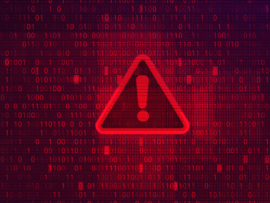Source: www.techrepublic.com – Author: J.R. Johnivan
We may earn from vendors via affiliate links or sponsorships. This might affect product placement on our site, but not the content of our reviews. See our Terms of Use for details.
A rash of SSD failures have prompted some users to blame a recent Windows Update. Microsoft insist the problem is not its fault.

Some Windows 11 users are blaming a recent patch for causing data corruption and hardware failure within their solid-state drives (SSDs). According to Microsoft, there is no correlation between its August 2025 KB5063878 update and those reported issues.
A recent Microsoft service alert reads, in part: “After thorough investigation, Microsoft has found no connection between the August 2025 Windows security update and the types of hard drive failures reported on social media. As always, we continue to monitor feedback after the release of every Windows update and will investigate any future reports.”
Understanding the SSD failure issue
Reports of SSD data corruption and hardware failure began surfacing in mid-August. The first known report was made by a Japanese PC builder, who noticed their NAND controllers would suddenly become undetectable while performing intensive write operations. The problem was particularly prevalent with hard drives that were over 60% full.
Restarting the system resulted in most of their drives being restored. After performing a series of tests, the user speculated the issue could stem from a memory leak caused by an issue with the SSD’s cache.
“Our tests show that symptoms appear on SSDs with over 60% usage after approximately 50GB of continuous writing. Reports indicate similar symptoms on HDDs as well,” said the PC builder.
Microsoft has been unsuccessful in its attempts to replicate the issue, and the company has denied any link between its recent update and the recently reported problems. It even worked with its partners who, after failing to replicate the issue on their end, declared there was no increase in SSD failures or data corruption associated with the latest Windows update.
Which SSDs are affected?
It wasn’t long before similar reports started coming in from other users. The issue cannot be traced to one specific manufacturer or model, given the variety of SSDs that were affected. Some of the affected SSDs are:
- Corsair Force MP600
- Kioxia Exceria Plus G4
- Kioxia M.2
- Maxio SSD
- SanDisk Extreme Pro
Additionally, several drives containing Phison or InnoGrit controllers have been affected. While the root cause of the issue has yet to be discovered, it seems that SSDs with less than 40% remaining capacity are at the highest risk of hardware failure or data loss.
What steps should SSD users take now?
Experts recommend that SSD users refrain from downloading, copying, or installing large files until a fix has been released. Those who have already experienced data loss can try using one of the best data recovery software to restore the contents of their hard drive, though success is not guaranteed.
What comes next?
As tests and investigations continue, these issues further underscore the delicate balance between hardware and software in modern PCs. Regardless of the issue’s root cause, the next few weeks will be critical in determining the extent of this problem.
J.R. Johnivan
J.R. Johnivan is a 17-year veteran whose writing is focused on innovation and technology, including IT, computer networking, security, cloud computing, staffing, human resources, real estate, sports, entertainment, and more.
Original Post URL: https://www.techrepublic.com/article/news-microsoft-windows-update-ssd-failures/
Category & Tags: Hardware,Microsoft,News,Security,Software – Hardware,Microsoft,News,Security,Software
Views: 7



















































